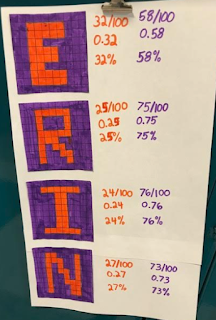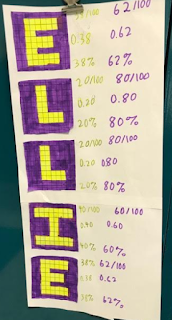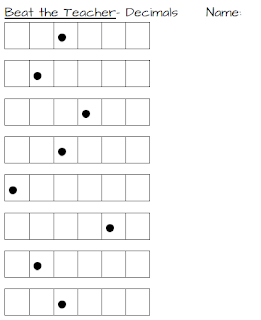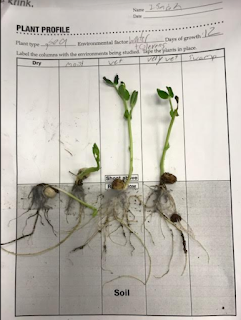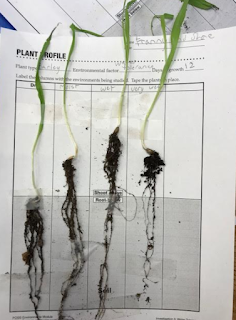In Science we chose one variable to change in our previous experiment. That experiment used differing amounts of water to see how it would impact the growth of barley, corn, peas and radishes. We found that some plants grew better or worse in the different environments, some liked more water, while others liked less.
This time we changed the experiment to include different liquids. In order to have a controlled experiment we kept ALL procedures the same, except we changed just the one variable, liquid. Here are our outcomes:
Group 1: We did Kool-aid and it made peas grow very well in moist and wet soil. But very wet soil didn't make any plants grow. Radishes grew a bit in moist and wet. Barley nor corn grew in any environment.
Group 2: Vinegar did not grow any thing at all except mold. The smell was not pleasant. We think the plants didn't grow because the vinegar is acidic.
Group 3: We used Mountain Dew. The only environment that plants grew in was moist soil. Three of the peas grew, the tallest being 9 cm. There was one radish, that grew up to 3 cm, and died in moist. The peas roots were REALLY long, one was 23 cm. See photo 2 below.
Group 4: We were using lemonade instead of water for growing our plants. Some of the plants like barley and radishes did terribly, or didn't grow at all in any environment. However, the peas grew like crazy, getting an insane number of leaves (19), and in one case two pea plants were actually connected by their roots. (Photo 1 below) It seemed like the less lemonade the better the plants did. Moist had the best growth, but nothing grew in very wet.
Group 5: Our liquid was coffee and it helped in wet and moist soil. But barley didn't grow in any environments. The radish was popping up really high. Coffee was the only liquid that corn grew in. Peas grew a lot of leaves.









